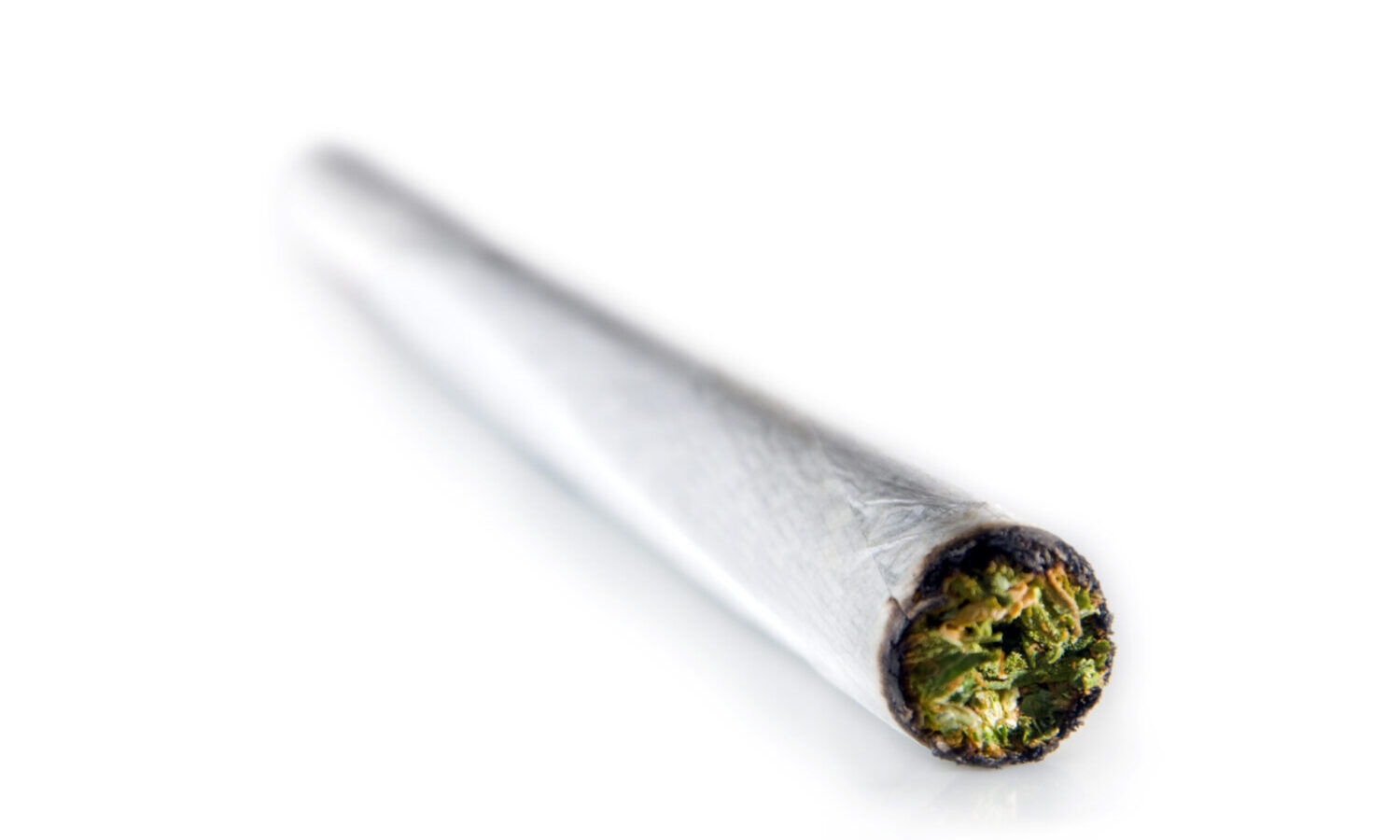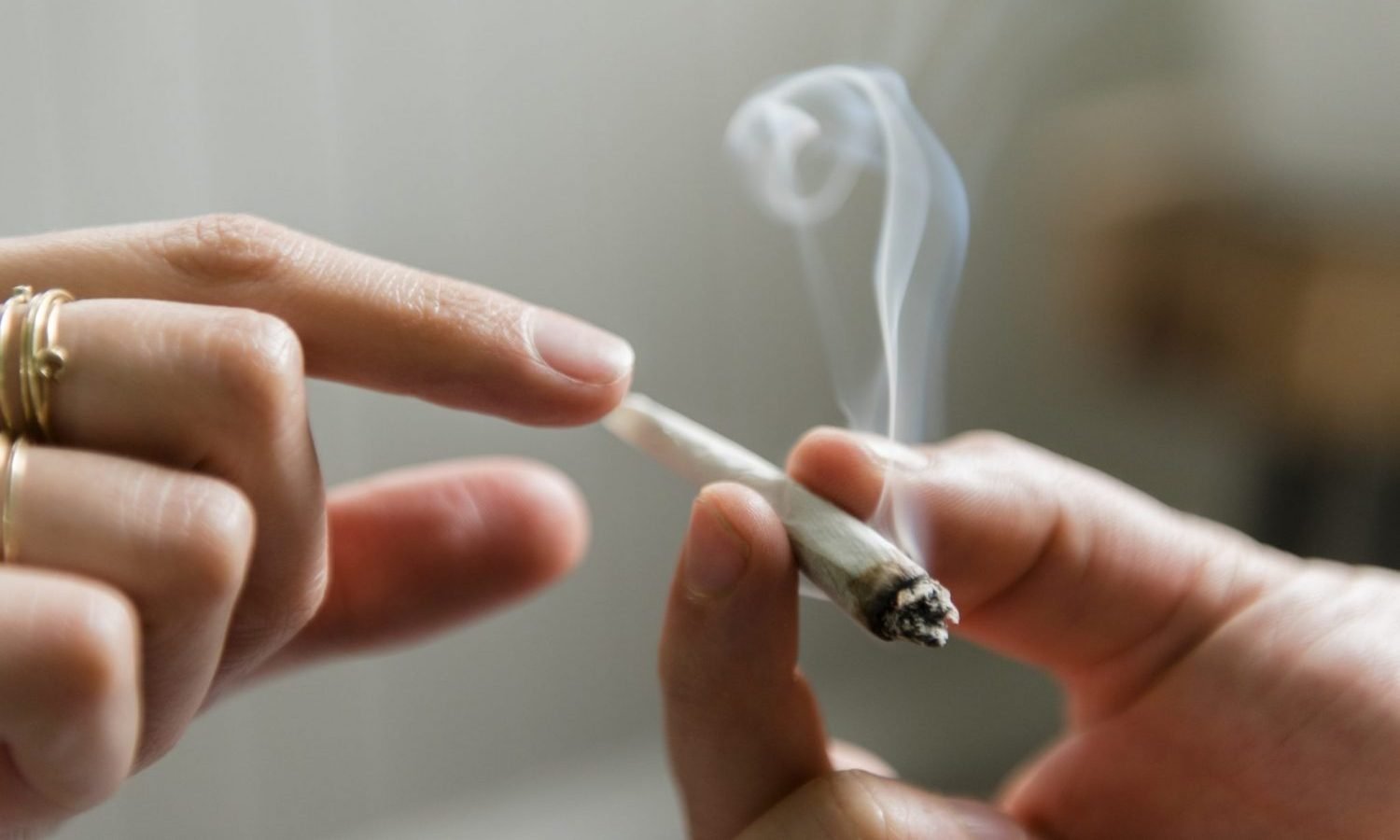Business
How Many Milligrams Of THC Is Too Much?

It might not be possible to fatally overdose on weed, but you sure can have so much that you wish you never got high in the first place. Here’s how to avoid that.
Although we hear it time and time again, we often have to learn the hard way that there is truth in the phrase “having too much of a good thing.” This saying, while annoying when uttered by our worrying parents when we eat candy as children, can be painfully true when it comes to marijuana consumption. What starts off as a delicious edible and relaxing high can potentially lead to an overwhelming burst of anxiety, paranoia and heart pounding. This is where the “too much” part comes into play.
When it comes to marijuana, it might not be possible to overdose in the classical sense when you think of a drug overdose and the death associated with it, but you sure can have so much that you wish you never got high in the first place. So in order to prevent an event that involves you thoroughly delirious and/or paranoid, you should probably know how much weed is too much for you, and how to avoid getting to that point.
Standard Dose Vs. Too Much
If you are looking to find a “serving size” of THC, you will quickly learn that the number of milligrams for a “serving” fluctuates based on who you ask and what state you are in. Scientists, for example, use 5 mg doses in most tests, as this creates a standard, and often subjects in the study feel the desired effects at that level. Experts recommend starting off with 2.5 mg of THC, and to not exceed 40 mg of THC per day.

In some states you can get a single edible that is 10mg, which sort of implies the serving size could be 10 mg in those places, while other states have a limited edibles to 5 mg. Ten milligrams is often considered a standard serving for those well-versed in THC consumption. Either way, as a rule of thumb, it is best to go with the one edible, and wait. Exceeding 40 mg, unless you are a seasoned cannabis consumer with a high tolerance, could send you into another dimension, which can be problematic and even dangerous if you weren’t planning on entering said dimension.
Edibles are the dosages you need to pay closest attention to, since they take so long to kick in. When it comes to smoking and vaping, it is much easier to keep yourself from consuming too many mg of THC at once. You just need to take a few breaks and pay attention to your mind and body to see if you notice any warning signs that you may have had too much.
Warning Signs That You Should Stop Consuming
One of the best ways to know when it is definitely time to stop consuming is when you start experiencing some of marijuana’s negative side effects. Sure, negative side effects can occur at any dosage, but if you are experiencing more than one, or more than you typically do, it could be you have consumed too many milligrams of THC.
The Centers for Disease Control and Prevention (CDC) states on its website that while fatal overdoses of marijuana are unlikely, watching out for some of the negative side effects can help keep you from entering a place that renders you out of your own control for several hours. The CDC mentions extreme confusion, anxiety, paranoia, a fast heart rate, increased blood pressure, hallucinations and vomiting as major red flags.
You might experience one or two of these from time to time, especially if you have a low tolerance or are trying a new strain, but experiencing several of these symptoms means it is time to pump the brakes. Be sure to note the amount of THC you consumed and try halting it the next time you indulge, and go from there.

Dosing Is Individual, Not A Science
Remember that while following a self-guided THC dosage plan can help you avoid a negative experience of feeling too high, you need to remember there is no exact correlation to milligrams of THC and how high you will be. All sorts of factors play a role in how high a certain amount of weed will get you.
From the strain, to the time of day, your weight and what you had for breakfast are just a few of the variables that can make all the difference between 10 mg of THC being perfect or way too much. As we’ve mentioned before, dosages of any substance effect people in different ways. Factors like tolerance, body mass, mindset and more all make a difference. So give yourself time to feel the effects before upping your dosage.
Once you find what works for you, it is probably good not to test the limits, because often the only way to find out how many milligrams of THC is too much is to find out from personal experience, and that’s an experiment you should do your best to avoid.
Source: https://thefreshtoast.com/how-to/how-many-milligrams-of-thc-is-too-much/
Business
New Mexico cannabis operator fined, loses license for alleged BioTrack fraud

New Mexico regulators fined a cannabis operator nearly $300,000 and revoked its license after the company allegedly created fake reports in the state’s traceability software.
The New Mexico Cannabis Control Division (CCD) accused marijuana manufacturer and retailer Golden Roots of 11 violations, according to Albuquerque Business First.
Golden Roots operates the The Cannabis Revolution Dispensary.
The majority of the violations are related to the Albuquerque company’s improper use of BioTrack, which has been New Mexico’s track-and-trace vendor since 2015.
The CCD alleges Golden Roots reported marijuana production only two months after it had received its vertically integrated license, according to Albuquerque Business First.
Because cannabis takes longer than two months to be cultivated, the CCD was suspicious of the report.
After inspecting the company’s premises, the CCD alleged Golden Roots reported cultivation, transportation and sales in BioTrack but wasn’t able to provide officers who inspected the site evidence that the operator was cultivating cannabis.
In April, the CCD revoked Golden Roots’ license and issued a $10,000 fine, according to the news outlet.
The company requested a hearing, which the regulator scheduled for Sept. 1.
At the hearing, the CCD testified that the company’s dried-cannabis weights in BioTrack were suspicious because they didn’t seem to accurately reflect how much weight marijuana loses as it dries.
Company employees also poorly accounted for why they were making adjustments in the system of up to 24 pounds of cannabis, making comments such as “bad” or “mistake” in the software, Albuquerque Business First reported.
Golden Roots was fined $298,972.05 – the amount regulators allege the company made selling products that weren’t properly accounted for in BioTrack.
The CCD has been cracking down on cannabis operators accused of selling products procured from out-of-state or not grown legally:
- Regulators alleged in August that Albuquerque dispensary Sawmill Sweet Leaf sold out-of-state products and didn’t have a license for extraction.
- Paradise Exotics Distro lost its license in July after regulators alleged the company sold products made in California.
Golden Roots was the first alleged rulebreaker in New Mexico to be asked to pay a large fine.
Source: https://mjbizdaily.com/new-mexico-cannabis-operator-fined-loses-license-for-alleged-biotrack-fraud/
Business
Marijuana companies suing US attorney general in federal prohibition challenge

Four marijuana companies, including a multistate operator, have filed a lawsuit against U.S. Attorney General Merrick Garland in which they allege the federal MJ prohibition under the Controlled Substances Act is no longer constitutional.
According to the complaint, filed Thursday in U.S. District Court in Massachusetts, retailer Canna Provisions, Treevit delivery service CEO Gyasi Sellers, cultivator Wiseacre Farm and MSO Verano Holdings Corp. are all harmed by “the federal government’s unconstitutional ban on cultivating, manufacturing, distributing, or possessing intrastate marijuana.”
Verano is headquartered in Chicago but has operations in Massachusetts; the other three operators are based in Massachusetts.
The lawsuit seeks a ruling that the “Controlled Substances Act is unconstitutional as applied to the intrastate cultivation, manufacture, possession, and distribution of marijuana pursuant to state law.”
The companies want the case to go before the U.S. Supreme Court.
They hired prominent law firm Boies Schiller Flexner to represent them.
The New York-based firm’s principal is David Boies, whose former clients include Microsoft, former presidential candidate Al Gore and Elizabeth Holmes’ disgraced startup Theranos.
Similar challenges to the federal Controlled Substances Act (CSA) have failed.
One such challenge led to a landmark Supreme Court decision in 2005.
In Gonzalez vs. Raich, the highest court in the United States ruled in a 6-3 decision that the commerce clause of the U.S. Constitution gave Congress the power to outlaw marijuana federally, even though state laws allow the cultivation and sale of cannabis.
In the 18 years since that ruling, 23 states and the District of Columbia have legalized adult-use marijuana and the federal government has allowed a multibillion-dollar cannabis industry to thrive.
Since both Congress and the U.S. Department of Justice, currently headed by Garland, have declined to intervene in state-licensed marijuana markets, the key facts that led to the Supreme Court’s 2005 ruling “no longer apply,” Boies said in a statement Thursday.
“The Supreme Court has since made clear that the federal government lacks the authority to regulate purely intrastate commerce,” Boies said.
“Moreover, the facts on which those precedents are based are no longer true.”
Verano President Darren Weiss said in a statement the company is “prepared to bring this case all the way to the Supreme Court in order to align federal law with how Congress has acted for years.”
While the Biden administration’s push to reschedule marijuana would help solve marijuana operators’ federal tax woes, neither rescheduling nor modest Congressional reforms such as the SAFER Banking Act “solve the fundamental issue,” Weiss added.
“The application of the CSA to lawful state-run cannabis business is an unconstitutional overreach on state sovereignty that has led to decades of harm, failed businesses, lost jobs, and unsafe working conditions.”
Business
Alabama to make another attempt Dec. 1 to award medical cannabis licenses

Alabama regulators are targeting Dec. 1 to award the first batch of medical cannabis business licenses after the agency’s first two attempts were scrapped because of scoring errors and litigation.
The first licenses will be awarded to individual cultivators, delivery providers, processors, dispensaries and state testing labs, according to the Alabama Medical Cannabis Commission (AMCC).
Then, on Dec. 12, the AMCC will award licenses for vertically integrated operations, a designation set primarily for multistate operators.
Licenses are expected to be handed out 28 days after they have been awarded, so MMJ production could begin in early January, according to the Alabama Daily News.
That means MMJ products could be available for patients around early March, an AMCC spokesperson told the media outlet.
Regulators initially awarded 21 business licenses in June, only to void them after applicants alleged inconsistencies with how the applications were scored.
Then, in August, the state awarded 24 different licenses – 19 went to June recipients – only to reverse themselves again and scratch those licenses after spurned applicants filed lawsuits.
A state judge dismissed a lawsuit filed by Chicago-based MSO Verano Holdings Corp., but another lawsuit is pending.
Source: https://mjbizdaily.com/alabama-plans-to-award-medical-cannabis-licenses-dec-1/
-

 Business2 years ago
Business2 years agoPot Odor Does Not Justify Probable Cause for Vehicle Searches, Minnesota Court Affirms
-

 Business2 years ago
Business2 years agoNew Mexico cannabis operator fined, loses license for alleged BioTrack fraud
-

 Business2 years ago
Business2 years agoAlabama to make another attempt Dec. 1 to award medical cannabis licenses
-

 Business2 years ago
Business2 years agoWashington State Pays Out $9.4 Million in Refunds Relating to Drug Convictions
-

 Business2 years ago
Business2 years agoMarijuana companies suing US attorney general in federal prohibition challenge
-

 Business2 years ago
Business2 years agoLegal Marijuana Handed A Nothing Burger From NY State
-

 Business2 years ago
Business2 years agoCan Cannabis Help Seasonal Depression
-

 Blogs2 years ago
Blogs2 years agoCannabis Art Is Flourishing On Etsy











